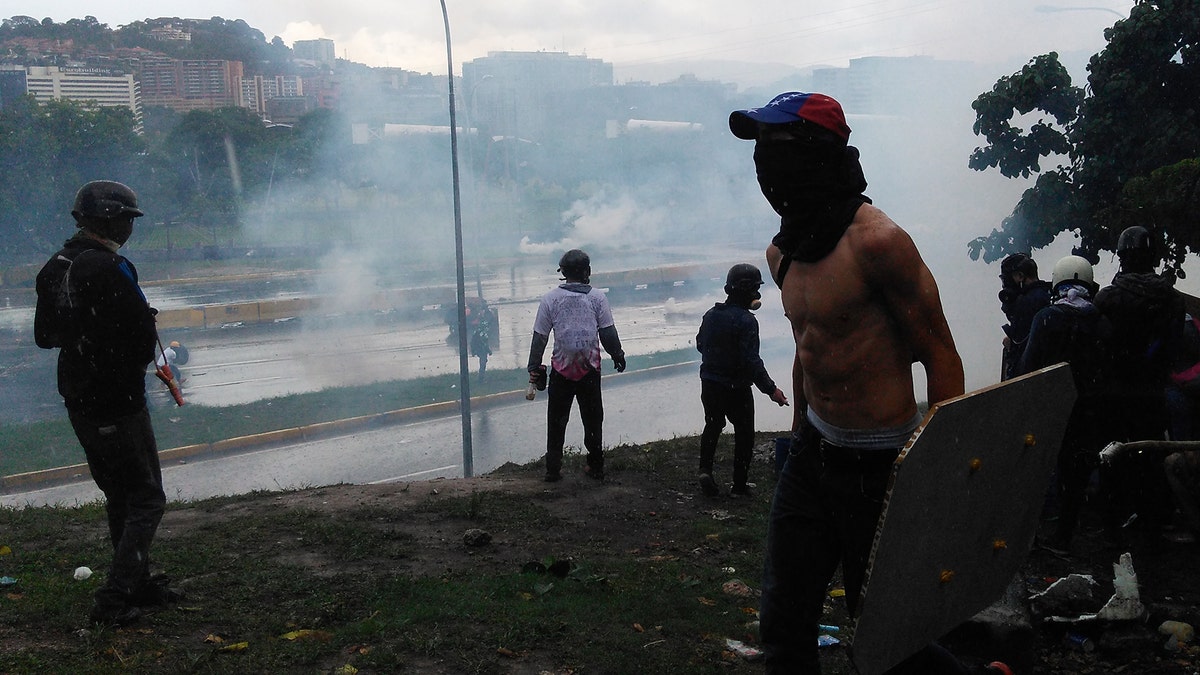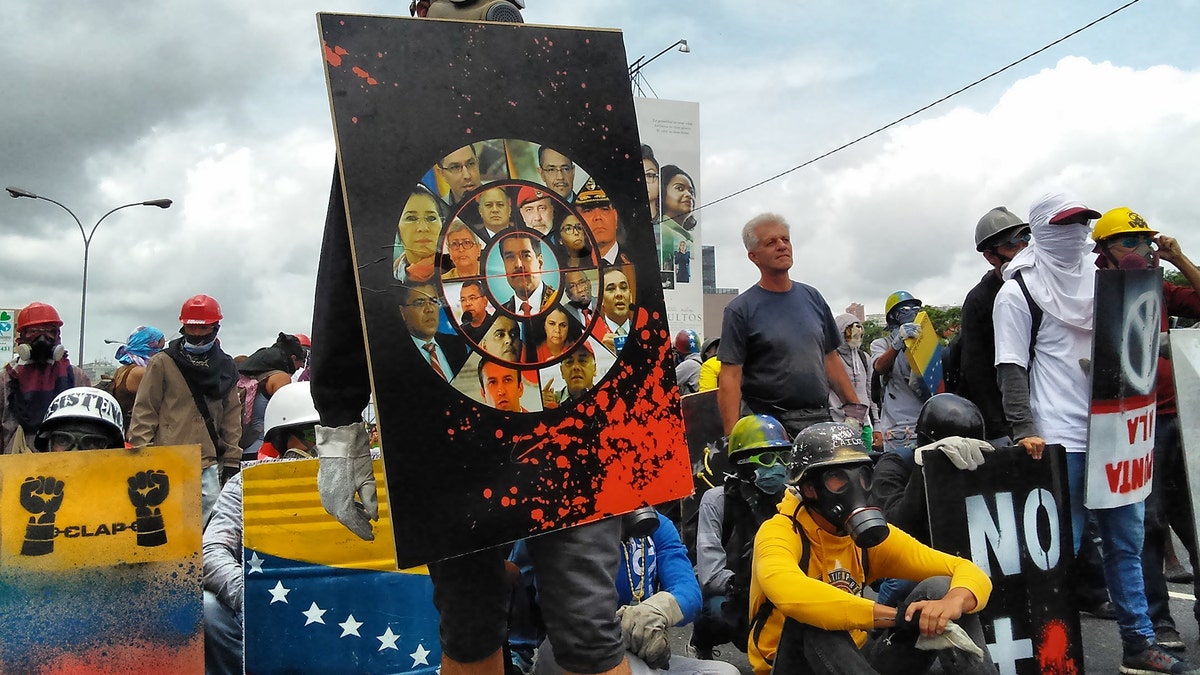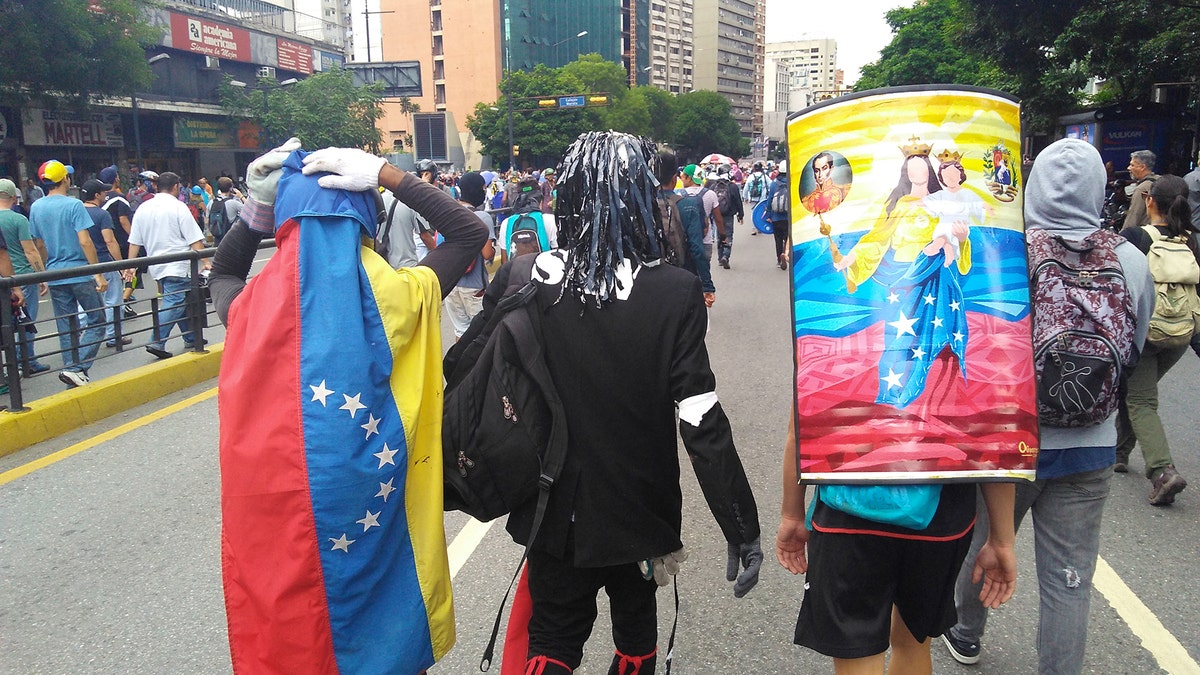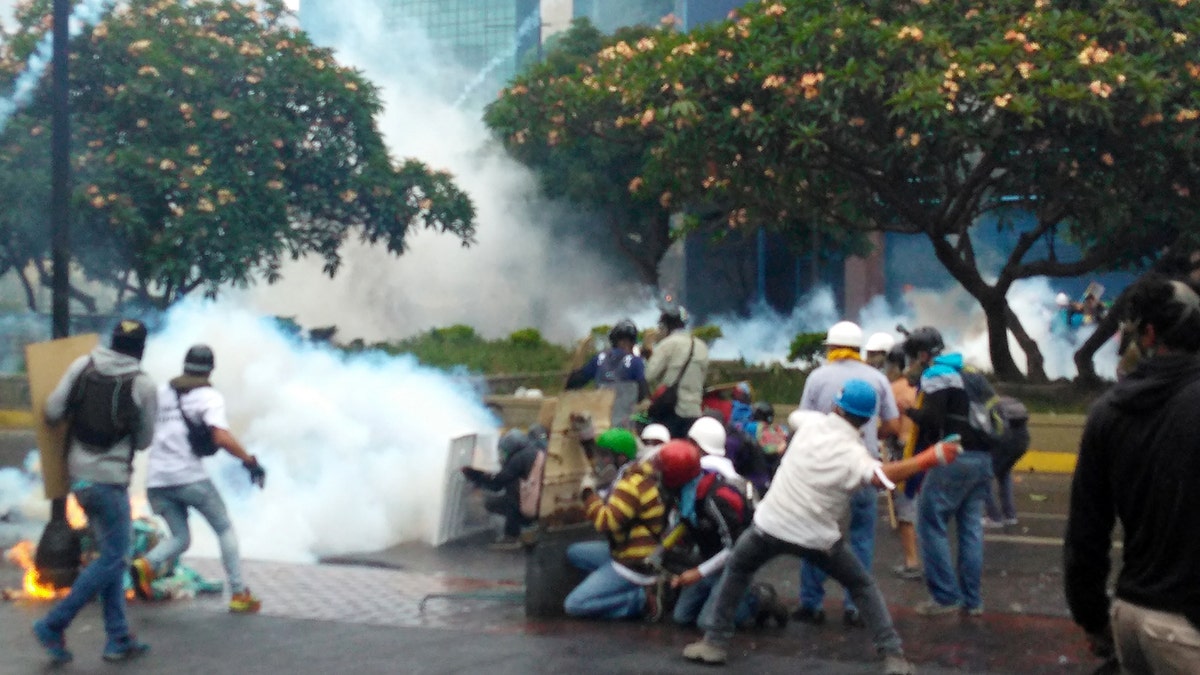The political crisis in Venezuela intensified this week when President Nicolas Maduro warned of an alleged "American intervention," a police helicopter attacked the country’s highest court with grenades and more young people died in protests against the government.
But beyond those headlines this week is a country on the brink of collapse.
PHOTOS: FACES OF THE VENEZUELA CRISIS

Riot in the main highway of Caracas after a demonstration against Nicolas Maduro (Riot in the main highway of Caracas after a demonstration against Nicolas Maduro (Carlos Crespo))
The socialist country is dealing with triple-digit inflation, political turmoil, food and medicine shortages and worsening crime.
And the problems keep getting worse.
On Tuesday, Maduro asked for President Donald Trump to stop an alleged plot by his government and the "Venezuelan right" to give him a "coup."
Hours later, a helicopter piloted by Oscar Perez, a cop and movie actor, crossed the center of Caracas, where the government buildings are, with a sign that said: "350 Freedom," a reference to the constitutional article that justifies rebellion against governments that violate human rights.

Young man observes the security forces with a shield that has the faces of high government officials. (Carlos Crespo)
The government said the helicopter dropped four grenades on the Supreme Court of Justice (TSJ) and fired against the Ministry of Interior and Justice.
There was little damage to the buildings and no one was injured.
In a video he shared in his social networks, Perez claims to be part of a coalition of military, police and civilians against the government. The group is demanding Maduro’s resignation.
VENEZUELA CRISIS: MADURO SAYS POLICE HELICOPTER FIRED ON SUPREME COURT, INTERIOR MINISTRY

"The resistance", young people who are in the front line of the demonstrations in Venezuela (Carlos Crespo)
The president, who called the incident a "terrorist attack", accused Perez of working for the CIA and ordered his capture. Perez managed to escape by boat.
But that was just the latest drama for a country in shambles.
Some say the bombings were a "plot" to allow the government to continue cracking down on anti-government demonstrators. At least 79 people have died the past three months during anti-Maduro protests because of the government’s brutal response.
"It’s difficult to know if it’s a plot. It’s enigmatic. We’ll have to wait," political scientist Luis Salamanca told Fox News.
Others also think the government orchestrated the attack to try to make a stronger case against Attorney General Luisa Ortega, a longtime “chavista” who became a hard opponent of Maduro.
VENEZUELA HUNTS FOR COPTER PILOT BEHIND 'TERRORIST ATTACK'
Ortega has launched a legal battle against the National Constituent Assembly, which was recently created to rewrite the national charter. She has asked the country’s Supreme Court – which is controlled by the government – to annul it for "violating participatory democracy."
She also requested the removal of 33 magistrates from the court, asserting that she didn’t authorize their selection, as required by law.

Demonstrators throw rocks and Molotov cocktails against police in a riot against Nicolas Maduro. (Carlos Crespo)
The high court has rejected her requests and on July 4 will decide whether to prosecute her. On Friday, the United Nations criticized Maduro’s government for curtailing her power.
Meanwhile, the opposition continues almost daily protests, demanding the departure of Maduro and rejecting the Constituent Assembly.
On Wednesday, when opponents of Maduro blocked streets across the country, three more young men died during rioting.
"We will continue to protest against the constitutional fraud," said Congressman Juan Guaido, who was wounded with rubber bullets in the back on Wednesday.
The conflict seems to have no end in sight.
Military expert Ricardo Sucre believes that the helicopter's attack shows that political tensions are escalating.
"It seems that resolution by the institutional route is not possible and the possibility of unexpected acts of violence is high," he told Fox News.
However, he discards a military uprising: "The Armed Force is cohesive around the government."







































